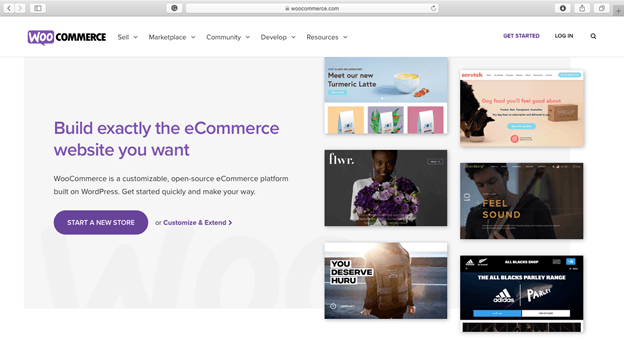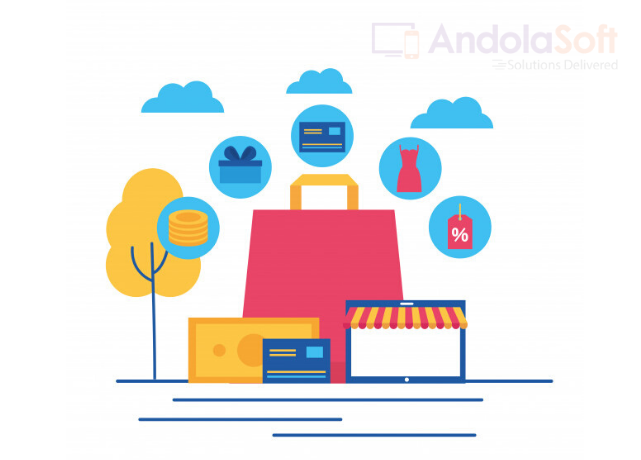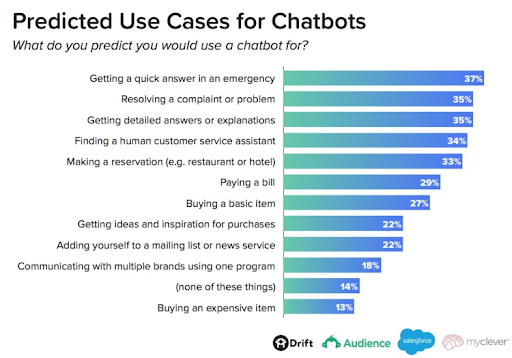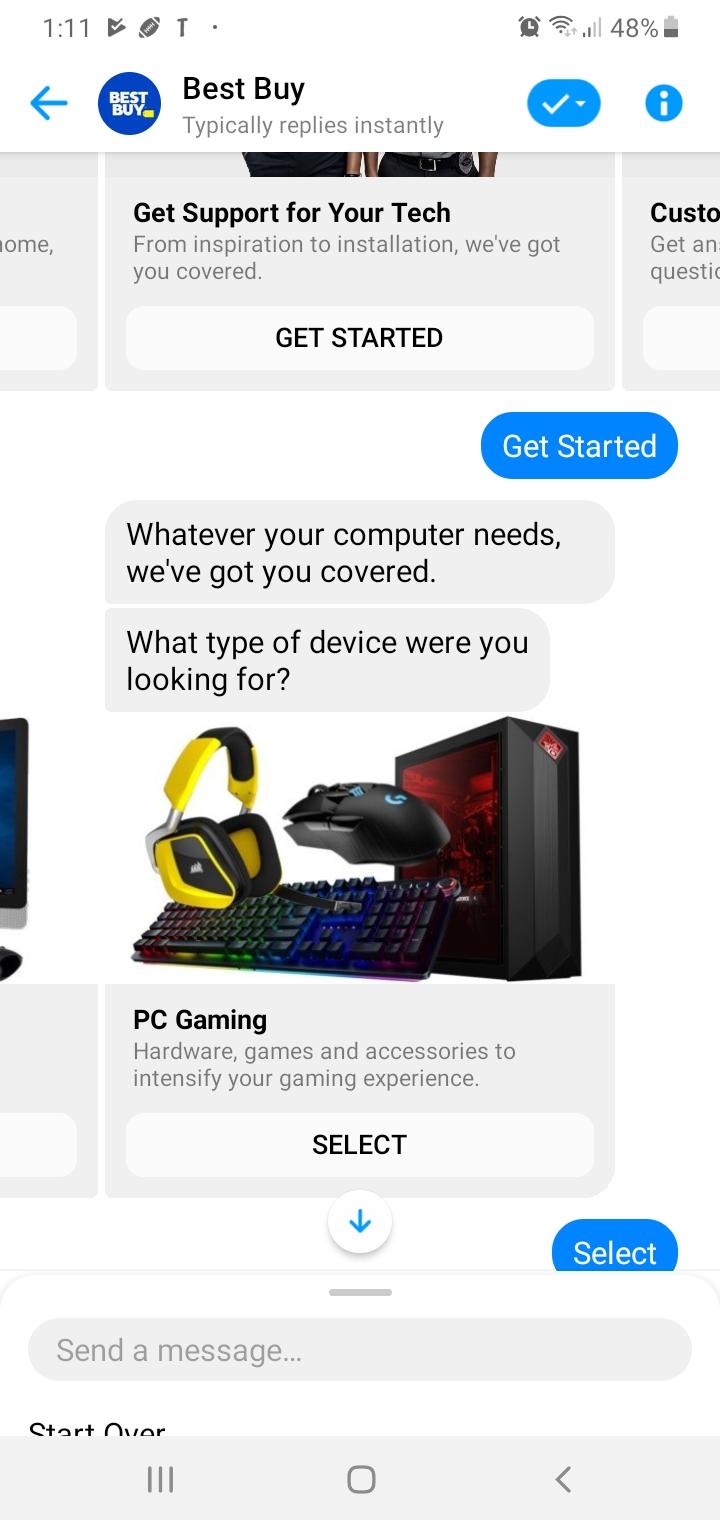When you start your small eCommerce business, you want to reach a wide range of audiences that can make your business a success. To do this, you need to invest in your platform and make sure that you are using the best but reliable avenue to sell your product or run your business.
Decades ago, you would need to invest a considerable run of money for your brick and mortar store as it requires a distinct property and building to come to life. In this digital era, the take where to place your business has shifted dramatically.
Technology continues to evolve, which creates much impact on many industries and can make your business grow.
What is the eCommerce Platform?
The age of the internet has dawned upon businesses of all sizes. Many are now moving to the internet to sell their products, offer their services, and build a business empire.
Ecommerce is a type of business model that has emerged from the evolution of the digital age that allows individuals and enterprises to buy and sell over the internet.
It has helped many businesses reach a broader market but through a cheaper and more efficient option than the traditional brick-and-store.
E-commerce platforms provide you with a lot of benefits like an open store for 24 hours a day and seven days a week, making your online business readily available for any person who wishes to check your company any time of the day.
With the influx of eCommerce platforms these days, deciding which platform to use is the trickiest part when moving or starting your online business.
Depending on your needs like the type of product you have or services you offer, the number of your products, your budget, and the control you want over your e-commerce business, you need to choose the best platform that will help your business grow.
In this article, you’ll find some of the best e-commerce platforms today for small businesses.
Ecommerce Platforms You Use For Your Small Business
1. Shopify
Many business experts and thought leaders in the eCommerce industry regard Shopify as one of the best eCommerce website builders for small businesses.
It is also one of the biggest and most widely-known platforms for online businesses of all sizes. Shopify is straightforward to use and has a user interface that does not require you to stock knowledge with IT or coding skills to build your online store.
Shopify is among the top choices for small businesses as well as large and established enterprises. One of the reasons is that Shopify allows you to build customizable online stores even if you have zero knowledge in coding and design.
Should your business grow more prominent, you do not have to think about switching to other platforms. Instead, you can upgrade for plants that can cater to your growing business.
Because of the growing competition online, building a business over the internet is not easy. Aside from your product or services being available online, your store should also be pleasing aesthetically.
Shopify made it easy for you, as you can choose a hundred themes that fit your business. It even has a responsive design that allows your online store to adapt to whatever device your customer uses.
2. BigCommerce
Another one of the most popular eCommerce platforms these days is BigCommerce. True to its name, BigCommerce is also the biggest in the industry as it caters to small and large businesses to build an eCommerce website.
It offers an extensive set of tools that would help you work your way around your online business.
BigCommerce allows you to create storefronts on other popular sites like eBay and Amazon. This move can be a great way to grow your business and expand your reach without creating multiple accounts.
Selling your products through other mediums can be an easy way to branch out while creating a consistent branding for your business.
 Your social media can also become part of your eCommerce store as BigCommerce allows you to integrate your social media into your online store. You can also sell your products through these avenues, thus growing your reach.
Your social media can also become part of your eCommerce store as BigCommerce allows you to integrate your social media into your online store. You can also sell your products through these avenues, thus growing your reach.
3. WooCommerce
WooCommerce is a WordPress plugin that you can use to turn your WordPress website into an eCommerce site for your small business.
WordPress is usually used to power up a blogging website, but with WooCommerce, it can function as your online store.
 Utilizing WooCommerce will allow you to bring in eCommerce functionalities to your website. It is an open-source eCommerce plugin that can fully customize your site, depending on your eCommerce needs. It is also a user-friendly plugin.
Utilizing WooCommerce will allow you to bring in eCommerce functionalities to your website. It is an open-source eCommerce plugin that can fully customize your site, depending on your eCommerce needs. It is also a user-friendly plugin.
That is why it is very popular with small business owners around the planet.
WooCommerce can make it easy for people to view your product and even purchase them. By getting this plugin for your WordPress website, you can quickly turn your existing website that leverages WordPress to an online platform that can help your business grow.
4. Squarespace
Squarespace is another great option, especially for those who are keen on keeping track of inventories. As an eCommerce store, it is essential to keep track of the product’s quantity, so you will know which of the items are running low.
Leveraging on Squarespace, you will have the chance to use their inventory management system.
This website builder is suitable for small businesses that want a sophisticated and straightforward option for their eCommerce store.
It also has a wide range of store themes that you can choose. When using Squarespace, you will get to control some aspect of your like managing your email list, shipping configuration, and coupon offers.
5. Wix eCommerce
Not all online businesses offer a wide array of products. Some have even less than 50 items to sell online. If your eCommerce store has only an offering of 50 or less than products, you can opt for Wix eCommerce.
Wix eCommerce is an easy and straightforward way to create a reliable website for your online store. It is even set up with a drag and drag them where you can add and remove features based on your business needs.
This feature makes it easier for you to create a storefront that suits your business’s needs and your desired audience preferences.
Like Shopify, you do not need any adequate knowledge of coding and design to build a great website. It even offers many eye-catching themes that can make your eCommerce business stand out among the competition.
6. Andolasoft
A one-stop-shop for all your business needs, Andolasoft, is another top choice you can consider to help your small business.
Andolasoft can take your business to the next level with its renowned mobile-friendly eCommerce solutions.
Being mobile-friendly means your eCommerce website should be able to adapt to any screen size your customers are using.
Andolasoft’s development services work and integrate with all the significant and popular eCommerce platforms in the market like Shopify, WooCommerce, Magento, and more.
It can make your website stand out with its key features such as Advanced Search, Wishlist, multiple themes, and dedicated blog on your eCommerce site.
Aside from an eCommerce solution, Andolasoft offers other services like mobile app development, open-source development, cloud management, support, and maintenance, making it easier for you to fulfill your small business’ needs.
With over 200 plus dedicated professionals, the company already has 11 years’ worth of experience in the eCommerce market. Andolasoft has a wide array of clients in about 35 countries worldwide, making them one of the top choices for any technological development requirement.
Final Thoughts
People are now online, not only to browse for any information but also to purchase any product or service they need.
Getting your eCommerce website is a must to make sure you take advantage of technology and the internet. However, just owning and building one is not enough. Aside from its aesthetics and beautiful design, your eCommerce site should be functional and user-friendly.
It should also be responsive and adaptive to any screen size your customer is using. To help you achieve this, take note of the eCommerce platforms mentioned in this article that you can consider in building your small business’ store online.








 Source: The 2018 State of Chatbots report
Source: The 2018 State of Chatbots report

